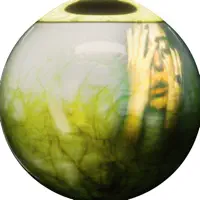
Classical
France
Claude Debussy
Top de canções de Claude Debussy
Mais álbuns de Claude Debussy
Sobre Claude Debussy

Terra natal
Saint-Germain-en-Laye, France
Data de nascimento
1862
Género
Classical
Claude Debussy, born near Paris in 1862, continually sought ways to create a uniquely French music in the face of prevailing German traditions. His only complete opera, Pelléas et Mélisande (1893-95, premiered 1902), successfully absorbed and forged paths beyond the pervasive Wagnerism that he and his contemporaries initially found impossible to transcend. By associating musical sound with visual images and imbibing aspects of poetic Symbolism and music from beyond the bounds of Europe, he forged an intensely individual and influential style. It was labeled Impressionism, a term Debussy himself disavowed, although he created compelling portraits in music through painstaking orchestration and a highly personal approach to harmony. In its languid chromaticism, the Prélude à l’après-midi d’un faune (1891-94) loosens its grip on tonality, while the three “symphonic sketches” of La mer (1903-05) chart the changing moods of the sea with uncanny vividness. Groups of piano miniatures with titles such as Images (1901-05, 1907) and Estampes (1903) paint expressive pictures in the minds of listeners. Debussy’s eternal quest for new modes of expression resulted in the elusive, rhythmically supple ballet Jeux (1912-13) and a return to notions of classical purity in three late chamber sonatas, composed while he was suffering from cancer, the disease that would lead to his death in 1918. A century later, Debussy’s greatest music would continue to exert a profound influence upon composers not only in France but far beyond.
Influenciado por Claude DebussyClaude Debussy influenciou a música de Elohim, Bill Evans, re:plus e outros.
Semelhante a: Claude Debussy
Descobre mais músicas e artistas semelhantes a Claude Debussy, como Mary Garden, Steve Anderson, François-Joël Thiollier

































































































































